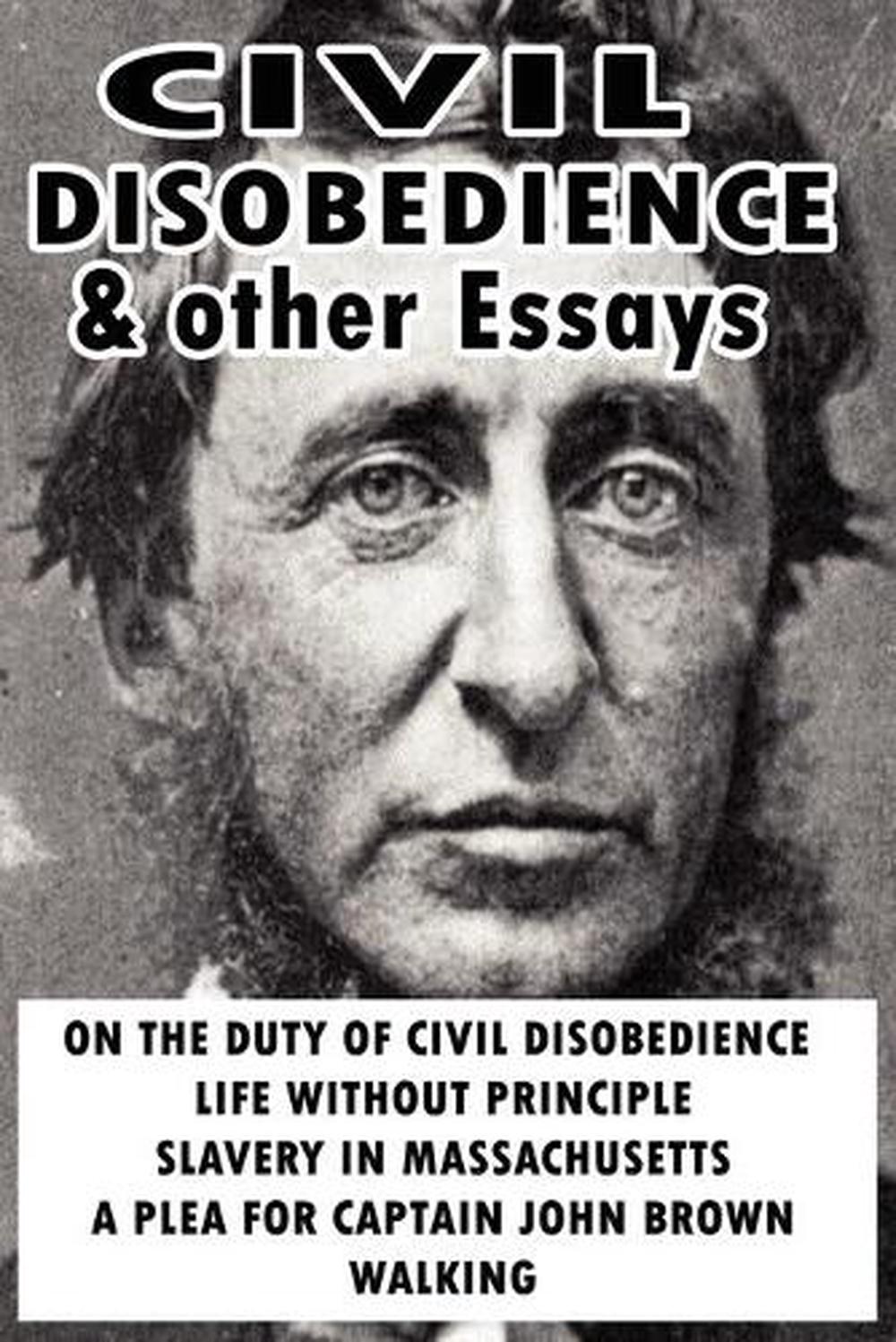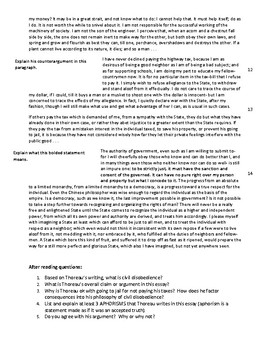

They form an acknowledgment that inner exploration loses meaning if matters of conscience are overlooked in the process. They are specific reactions to what he sees as extreme events. Thoreau's antislavery and reform pieces do not diminish the significance of Transcendental exploration and discovery. I must get off him first, that he may pursue his contemplations too. If I devote myself to other pursuits and contemplations, I must first see, at least, that I do not pursue them sitting upon another man's shoulders. It is not a man's duty, as a matter of course, to devote himself to the eradication of any, even the most enormous wrong he may still properly have other concerns to engage him but it is his duty, at least, to wash his hands of it, and, if he gives it no thought longer, not to give it practically his support. I came into this world, not chiefly to make this a good place to live in, but to live in it, be it good or bad." However, circumstances make it impossible to live life as usual without damage to morality and conscience: Thoreau writes dismissively of conscious reform: "I have other affairs to attend to. The search for understanding of universal laws forms the proper use of a man's time, energy, and intellect.

If a man is thought-free, fancy-free, imagination-free, that which is not never for a long time appearing to be to him, unwise rulers or reformers cannot fatally interrupt him. It is not many moments that I live under a government, even in this world. the government does not concern me much, and I shall bestow the fewest possible thoughts on it. He was not particularly inclined to devote much thought to political theory and reform. Thoreau prepared his lecture and essay on resistance to civil government in response to a specific event - the Mexican War, which was declared in May of 1846, and which was expected to result in the expansion of slave territory. In cases where the two are at odds with one another, the individual must follow his conscience and, if necessary, disregard human law. Human law and government are subordinate. In Civil Disobedience, Thoreau's basic premise is that a higher law than civil law demands the obedience of the individual.

Thoreau's "A Week on the Concord and Merrimack Rivers".Selected Chronology of Thoreau's Writings.Emerson's "The Divinity School Address".Selective Chronology of Emerson's Writings.

Forms of Expressing Transcendental Philosophy.


 0 kommentar(er)
0 kommentar(er)
